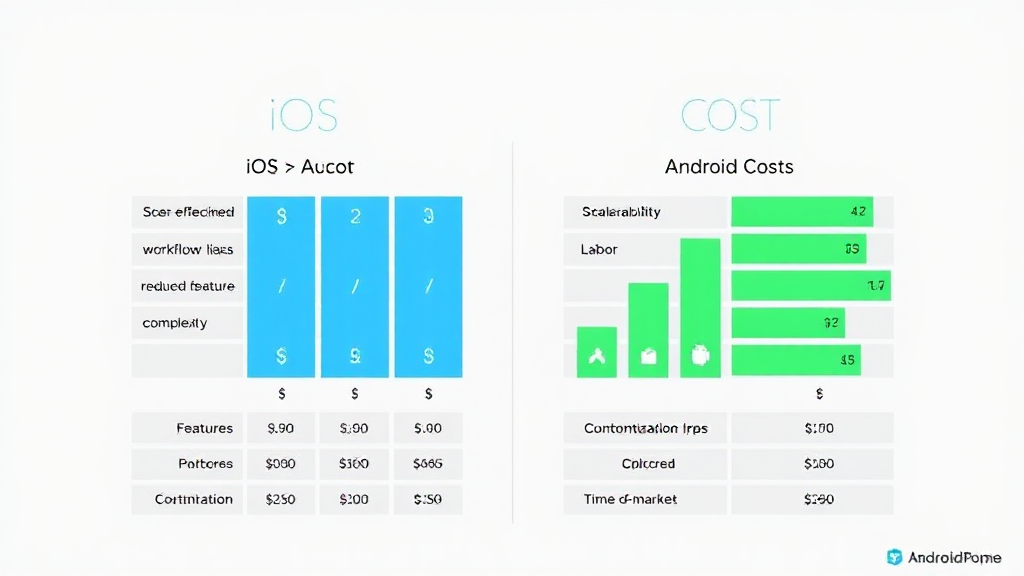The Role of Mobile App Development in Modern Business: A Focus on AI Integration

For a deeper dive, see our
.
iOS offers cost-effective streamlined workflows, while Android provides scalable customization options for developers.
Introduction
In today’s hyper-connected world, mobile apps have become an integral part of business strategy. From enabling seamless customer interactions to driving operational efficiency, mobile app development has evolved beyond just being a tool for business growth—it’s now a critical component of digital transformation. As businesses increasingly seek to leverage advanced technologies like artificial intelligence (AI) and machine learning (ML) through API integration, the integration of these capabilities into mobile apps has become a game-changer.
This article explores the pivotal role of mobile app development in modern business, with a special focus on how AI is revolutionizing the landscape. We’ll delve into the benefits of AI-integrated mobile apps, discuss key trends shaping the industry, and provide insights into how businesses can leverage these advancements to stay competitive.
The Role of Mobile App Development in Modern Business
A Foundation for Digital Engagement
Mobile apps serve as a direct interface between businesses and their customers, offering unparalleled opportunities for engagement. Unlike traditional web platforms, mobile apps are accessible anytime, anywhere, providing a personalized experience that fosters customer loyalty.
Enhancing Operational Efficiency
For businesses, mobile app development isn’t just about customer-facing features—it also plays a crucial role in streamlining internal operations. From inventory management to employee productivity tools, mobile apps can automate processes and reduce operational overhead, allowing companies to focus on growth and innovation.
AI Integration: The Future of Mobile App Development
Why AI is Essential for Modern Apps
The integration of AI into mobile app development isn’t just a trend; it’s a necessity. By leveraging AI services, businesses can create smarter, more adaptive mobile apps that understand user behavior, predict needs, and deliver personalized experiences at scale.
Key Features Enabled by AI in Mobile Apps
Personalized User Experiences AI algorithms analyze user data to tailor app content, recommendations, and notifications, creating a highly individualized experience.
Smart Automation From chatbots that assist users in real-time to automated workflows that streamline business operations, AI-powered apps are more efficient and responsive.
- ** predictive analytics**: By analyzing usage patterns and trends, AI enables apps to anticipate customer needs and offer proactive solutions.
Cost-Effective Solutions with AI-Driven Mobile Apps
Reducing Development Costs
While the initial investment in AI integration might seem high, the long-term benefits often outweigh the costs. AI-driven development tools can reduce time-to-market by automating repetitive tasks, thereby lowering overall development expenses.
Enhancing User Engagement and Retention
AI-powered features like personalized recommendations and dynamic content keep users engaged longer, reducing churn rates and fostering customer loyalty—key factors in driving business success.
Scalability: Building Apps for Future Growth
Adapting to Business Needs
One of the primary advantages of AI-integrated mobile apps is their scalability. Businesses can easily add new features or adapt existing ones to meet evolving demands without overhauling the entire system.
Future Trends in Mobile App Development
The Rise of AR and VR
Augmented Reality (AR) and Virtual Reality (VR) are poised to play a significant role in mobile app development, offering immersive experiences that enhance user interaction.
The Growing Importance of 5G Connectivity
Faster data transfer speeds enabled by 5G technology will open up new possibilities for AI-driven apps, particularly in areas like real-time data processing and high-resolution graphics.
Conclusion
Ready to take the next step?
.
The integration of AI into mobile app development is redefining how businesses interact with their customers and operate internally. By embracing these advancements, companies can create more intelligent, efficient, and engaging apps that drive growth and innovation.
As the digital landscape continues to evolve, staying ahead of the curve will require businesses to prioritize cutting-edge technologies like AI in their mobile app strategies. With the right approach, mobile app development can serve as a powerful catalyst for business success in an increasingly competitive world.
Related Articles
Understanding the Role of AI Development in Modern Businesses: A Comprehensive Guide
Discover how AI development transforms modern businesses with our comprehensive guide. Learn how AI drives innovation and automation, and uncover the secrets of
Understanding the Importance of API Integration Services for Modern Businesses
Discover how API integration services streamline modern business operations, improving efficiency and communication across systems. Learn why seamless connectiv
The Evolution and Importance of AI in Modern Software Development
Discover how AI is transforming software development, from design to deployment. Learn about its rapid evolution and growing importance in modern software creat